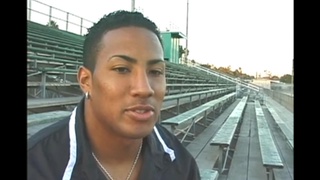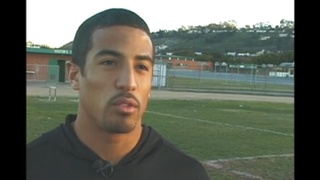Interviews
Gained appreciation of his multiracial heritage through participation in Nisei Relays
When I was younger I attended Japanese school on Saturdays, and I think that's when I first found out about the Nisei Relays. At first it was kind of unusual because you go to the relays and there's all Japanese people, and then I show up, and people are wondering, like, who's this guy? Why is he in the race? And then you know, of course, they'd see me with my mom and my dad, and they'd go 'Oh, okay.' So that was a lot of fun because it was really my first organized track meet that I was in. I really grew from there, and I learned a little bit about the culture, and I think really developed an appreciation for my Japanese heritage.
Date: February 7, 2000
Location: California, US
Interviewer: John Esaki
Contributed by: Watase Media Arts Center, Japanese American National Museum.



